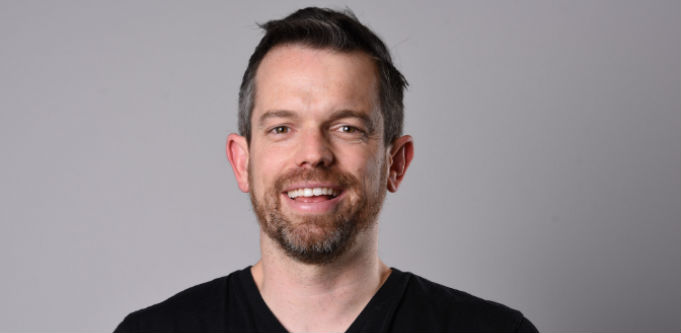
Source: Supplied
In a Medium post last week, entrepreneur Mike Knapp branded startups “financial suicide”, and admitted he doesn’t expect to see a financial return from the first startup he co-founded, even though Shoes of Prey is alive, well and international.
Knapp — who also founded experimental social network app Mottle and is now technical entrepreneur-in-residence at Brisbane’s River City Labs — co-founded Shoes of Prey, an online custom shoe retailer, with Jodie Fox and Michael Fox in 2009. Considered by some as an Australian startup success story, Shoes of Prey raised millions in funding, opened a factory in China and moved its headquarters in Los Angeles. For a period of time, it also had its own design centres inside Nordstrom stores in the US.
Knapp hasn’t been involved in the business for more than a year, and in his Medium post, he said: “I also don’t expect to ever see a return”.
But, the point of the article was not Shoes of Prey’s financial success, or otherwise. The main issue, for Knapp as a startup founder, was an unwavering belief that his startup would succeed, and a subsequent failure to manage his personal finances as well as he could have done.
“I guess I conflated my strong belief in the team and myself with the belief the company would succeed. I knew what I am capable of, and what the team is capable of, and that made me feel ‘safe’,” he tells StartupSmart.
“Hopefully the company will still succeed — that’s not the point. The point is, because of my confidence, I considered optimising my personal finances a waste of time.
“That was a big mistake, and something I want to warn others about.”
In the Medium post, Knapp notes that having a startup is “all the rage”, which led to some comment responses around the ‘right’ motivations for creating a startup, and the drawbacks of treating businesses like, in Knapp’s words, “fashion accessories”.
But Knapp tells StartupSmart the motivations behind founding a startup is not necessarily the issue. It’s more about managing expectations.
“Everyone has their own reasons for starting a company. Some motivations will be noble. Others, not so much,” he says.
“The desire to make money — even a lot of money — isn’t a bad thing, per se. But you need to be realistic about your chances of success. It’s going to be a 10-year hard slog, if you’re lucky.”
“Your business should respond to some bigger challenge in the world, not your ego,” he adds.
Knapp also warns startup founders not to be fooled into believing successful funding rounds and reaching milestone numbers of customers constitute success. He warns that, while these milestones should be celebrated, “as a founder, don’t think you’re ‘successful’ for raising $3 million”.
Any celebrations should recognise the hard work done, “not the dollars in the bank”, he says.
“Winning lots of customers is awesome, and cause for celebration. But you need to also understand their lifecycle. Are they churning, with high cost of acquisition and low lifetime value? Is this becoming a more or less sustainable business over time?”
Even though his Medium post warned startup founders that getting rich off their shares is “quite improbable”, Knapp says he would still encourage founders to go for it, just with a little more care than he did.
“Definitely still pursue your passion,” he says.
“But manage your personal finances as if your startup will fail. Manage your startup so that it will succeed.”
He also advises those founders that are fresh out of university to spend five years or more working in a larger company first.
“You don’t know what you don’t know. I was too naive — even at 27,” he admits.
So what would he do to better look after his own finances if he had his time again? “Live more frugally” for one, he says in his Medium post. This means saving at least 20% of what he was earning, or ideally, 40%. He says he’d also “obtain a second or third source of income – driving for Uber on Saturday night doesn’t sounds so crazy right now”, and he’d take his superannuation seriously.
But, of course, it’s not all about money. There’s a lot to be gained from the startup journey that isn’t financial at all. Despite his personal financial struggles, Knapp considers Shoes of Prey a veritable success.
“I’ve learned an incredible amount, and had some pretty wild adventures,” Knapp says.
“I’m very proud of what we achieved.”


COMMENTS
SmartCompany is committed to hosting lively discussions. Help us keep the conversation useful, interesting and welcoming. We aim to publish comments quickly in the interest of promoting robust conversation, but we’re a small team and we deploy filters to protect against legal risk. Occasionally your comment may be held up while it is being reviewed, but we’re working as fast as we can to keep the conversation rolling.
The SmartCompany comment section is members-only content. Please subscribe to leave a comment.
The SmartCompany comment section is members-only content. Please login to leave a comment.